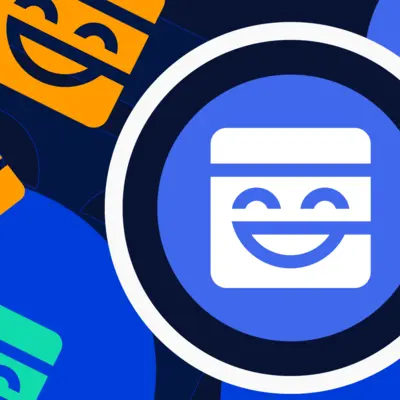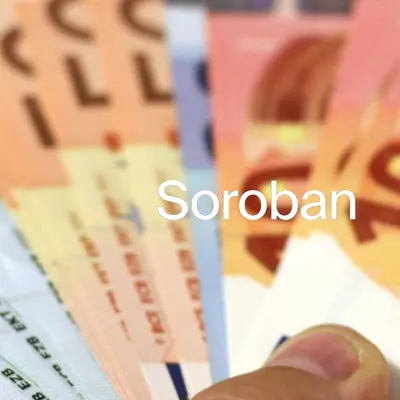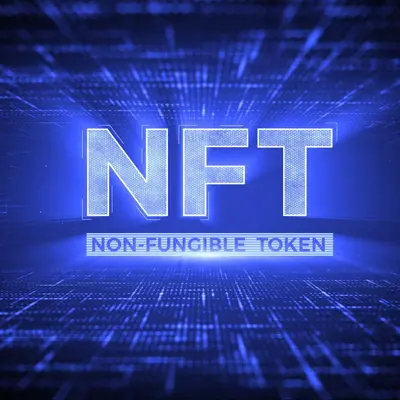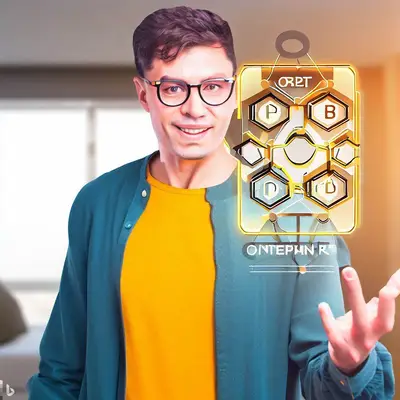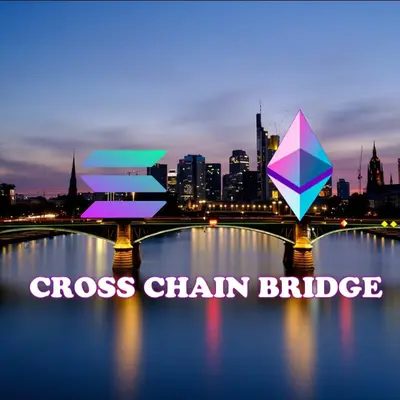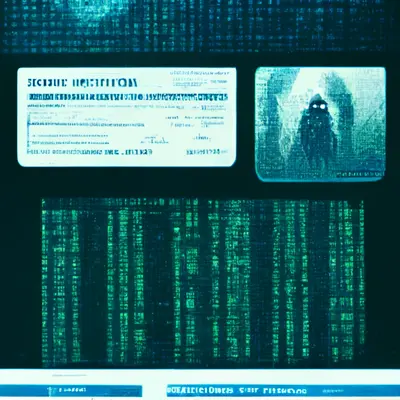What is Smart Contract? How smart contracts work
What is Smart Contract? How do smart contracts work? What are their advantages and disadvantages? Find out right here!
Dex, NFTs, Marketplace,... These are all applications created by smart contracts (or smart contracts) on the blockchain. In today's article, we will learn what a Smart Contract is, its advantages and disadvantages as well as the applications of smart contracts in Crypto.

What is Smart Contract?
Smart Contracts (or Smart Contracts) are programs that run on the blockchain. A smart contract is like a digital contract that is enforced by a specific set of rules. These rules are predefined by a set of computer code that all nodes in the network must copy and enforce.
In essence, Smart Contract is just a piece of code running on a distributed system (blockchain), allowing the creation of Permissionless protocols (ie without authorization). That means:
- Two parties to a contract can make commitments through the blockchain without having to know each other's identities or trust each other.
- They can ensure that if the conditions of the contract are not satisfied, the contract will not be enforced.
In addition, the use of smart contracts eliminates the need for intermediaries, greatly reducing operational costs.

Each blockchain has a different smart contract implementation method, for example on Cosmos there is WASM, Polkadot has ink!... The most prominent of which is still Smart Contract running on Ethereum's virtual machine ( Ethereum Virtual Machine - EVM).
How does Smart Contract work?
Simply put, Smart Contract works like a program deterministic. Smart Contracts will execute a specific task in case certain conditions are satisfied.
In a smart contract, there may be many provisions necessary to satisfy the participants that the task will be completed satisfactorily. To establish terms, participants must define how their transactions and data are represented on the blockchain, agree on “if/when…then…” rules that govern those transactions, explore Break all possible exceptions and define a framework for dispute resolution. Therefore, a Smart Contract system usually follows "if…then..." statements. These actions may include releasing funds to the appropriate parties, registering vehicles, sending notices or issuing tickets. The blockchain is then updated when the transaction is complete. That means the transaction cannot be changed and only authorized parties can see the results.
The smart contract can then be programmed by the developer - although more and more organizations using blockchain for business provide templates, web interfaces and other online tools to simplify smart contract structure.
On Ethereum, Smart Contracts are responsible for executing and managing the activities that take place on the blockchain when users (addresses) interact with each other. Any address that is not a smart contract is called an Externally Owned Account (EOA). Therefore, the smart contract will be controlled by the computer and User Controlled EOA.
Smart Contract Ethereum consists of a contract code and two public keys:
- The first public key is the key provided by the contract creator.
- The remaining key represents the contract itself, this key acts as a unique digital identifier for each Smart Contract.
Smart Contracts are implemented via blockchain transactions and they are only activated when an Independent Account (EOA) or other Smart Contracts call them. However, the first trigger is always from the EOA (user) side.
Pros & Disadvantages of Smart Contracts
Advantages
A smart contract is a set of programmable code that is highly customizable and can be designed in different ways to be able to offers a wide range of services and solutions.
In addition, smart contracts are decentralized and self-executing programs, they help increase transparency and reduce costs work. If implemented properly, they can also increase operational efficiency and reduce administrative costs.
Disadvantages
Smart Contract is based on blockchain system so cannot be modified and interfered with. Once the Smart Contract is written, if you want to change it, the only way is to rewrite a new contract. Immutability is a great advantage, but in some cases can be a disadvantage.
Example:
When a decentralized autonomous organization (DAO) named "The DAO" was hacked in 2016, millions of ETH was stolen due to a mistake flaw in their smart contract code.
Since their Smart Contract is immutable, developers cannot edit the code. This eventually led to a hard fork, creatingEthereum ClassicandEthereum.
Besides, Smart Contract is also a product from Blockchain, which Blockchain is not yet legally protected. So Smart Contract if an error occurs, users are not protected by the government.
In addition, there is some opinion that centralized systems can also provide most of the solutions and functions that smart contracts offer. What is different, however, is that smart contracts run on a distributed peer-to-peer (P2P) network instead of on a centralized server.
Risks of Smart Contract
Smart Contracts are just pieces of code that run on a Blockchain created by humans, they are not smart, they work the way the developer writes them, not the way the developer writes them. developers think they will work. So Smart Contract is still at risk because the code is vulnerable to attacks and bugs.
Typically, there were a lot of hacks that happened in 2021, causing a lot of projects to suffer heavy damage. You can read more here.
In addition, the inability to modify the cons section is also something worth noting. If you unfortunately write down any terms, such as the time to pay tokens of funds, teams, etc., it means you have to rewrite it from scratch.
Applications of Smart Contracts in Crypto
Basically, most of the applications powered by centralized systems can be similarly designed and powered by Smart Contracts on the blockchain .
Smart Contract allows developers to design many different use cases: Cryptocurrency wallet to store Coin & Tokens, decentralized exchanges (DEX), games (gaming), NFT,.... Below is some example of smart contract application:
Defi
Decentralized finance (DeFi) applications represent a significant alternative to traditional financial services, and they are becoming increasingly popular due to their trustless, immutable, and transparent nature. they. transparency of blockchain technology and smart contracts. DeFi applications provide parallel services to the banking and financial services industry - such as lending, borrowing, trading and a range of other financial services - along with a complete product portfolio. new and decentralized business models can bring significant benefits and utility to users. With the increasing transparency of smart contracts (along with 24/7 functionality and reduced costs), dApps have the potential to reduce barriers to entry into the financial services sector for all. around the world.
DeFi projects have already raked in billions of US dollars and will continue this trend as more and more people become familiar with the industry's unique value propositions. Users can participate in this new generation of financial services without the need for centralized custody or fees from intermediaries. Although the DeFi sector is only a few years old, with the number of innovative dApps already providing value and utility to consumers, the impact of smart contract-based dApps on the financial industry has is felt.
Nft & Game
The global games industry is a hundred billion dollar ecosystem that continues to grow rapidly, but the way value is created and distributed throughout the industry can be unfair. Developers create and publish games, and players pay to play and interact with those games. This maintains a one-way value stream where players spend money to unlock access to in-game content and game configuration. In contrast, in-game blockchain technology could enable players to more efficiently capture the utility and value of in-game asset purchases and sales.
In-game blockchain technology is often fueled by non-fungible tokens (NFTs) - the only digital assets that represent in-game content. NFT is based on smart contracts. These tokens are unique, rare, and indivisible, while the blockchain networks that underpin NFT facilitate player ownership, provable scarcity, interoperability, and immutability. variable. Change. Together, these in-game blockchain features have the potential to drive mainstream adoption and a more equitable value model.
Thanks to the implementation of blockchain technology in the gaming industry, you can save in-game purchases, sell them to other players, or transfer them to other supported games. Meanwhile, the scarcity of in-game NFT purchases is provable through immutable records embedded in the NFT's underlying blockchain network - as well as its ownership history. Because NFTs are unique and can be designed to retain value beyond the games they originate from, blockchain-built games and dApps have the potential to expand the game economy, establish new game brands and promote the development of new games. Blockchains with significant game development include Ethereum, TRON, EOSIO, and NEO.
Legal industry
Perhaps one of the most promising real-world use cases of smart contracts is their potential to act as legally binding contracts – the kind that inform most business engagements today. . Technology has fueled innovation in the legal industry, most recently with the introduction of electronic signatures for binding legal agreements. Smart contracts are another new development in this space and could soon be an option for parties to legal agreements, potentially reducing the costs incurred from the use of lawyers and parties. other intermediary.
Using a multitude of preset smart contracts for transaction types that can reduce costs and speed up transactions may be closer than you think. Several US states have begun allowing the use of smart contracts and blockchain in the legal industry in certain contexts. For example, Arizona allows enforceable legal agreements to be created through smart contracts, and California allows marriage licenses through blockchain technology.
International trade
By joining we.trade, the trade finance network hosted by IBM Blockchain, businesses are creating a trusted ecosystem for global trade. As a blockchain-based platform, we.trade uses standardized rules and simplified trading options to reduce friction and risk while easing the trading process and expanding trading opportunities. translation for participating companies and banks.
Real Estate
Through tokenization, smart contracts are promoting fractional property ownership and thus reducing investment barriers for many by consolidating blockchain and real estate transactions. In particular, there have been a number of successful attempts at tokenizing real estate assets, including through platforms like RealT and SolidBlock that combine blockchain and real estate. Smart contract technology can also re-implement the documentation and transaction process by incorporating blockchains in real estate transactions. For example, the Republic of Georgia (in the Caucasus) has been developing a blockchain-based land title registry since 2016 and similar projects are underway in other jurisdictions such as the United Arab Emirates United (UAE).
Anyone who has purchased a home or other real estate is likely aware of the potential costs associated with closing fees, title transfers, and brokerage fees. These are costs that can be reduced or even by automatically executing smart contracts without the need for a middleman. Once assets are encrypted, much of the required record keeping can take place through linked smart contracts, which can save parties time and money. Some experts have even claimed that smart contracts can benefit parties by streamlining complex leases and credit or mortgage agreements, as well as insurance policies. guarantee and guarantee. insurance. By using smart contracts and blockchain in real estate, the need for legal advice or other advisory services becomes less important, potentially cutting costs across the board.
Decentralized Autonomous Organizations (DAOs)
In 2017, Delaware passed Senate Bill 69, which allows businesses to be incorporated and managed using blockchain technology. This bill has opened the door to the proliferation of decentralized autonomous organizations that function as corporations in which ownership and compensation can be built into smart contracts. DAOs, which use smart contracts to code the corporate structure, can enable sophisticated incentive structures that are automatically executed within the company framework. DAOs can also help save on administrative costs including office space, recruitment and payroll through incentive structures that may not include formal employment contracts.
Summary
Thus, we have learned what a smart contract is, as well as some advantages & Disadvantages and applications of smart contracts in Crypto!
Disclaimer: All information contained in this article is for sharing market experience only and should not be considered investment advice. Crypto investment is a form of risky investment and should only be entered with capital that can be lost.
Sep 11, 2022


